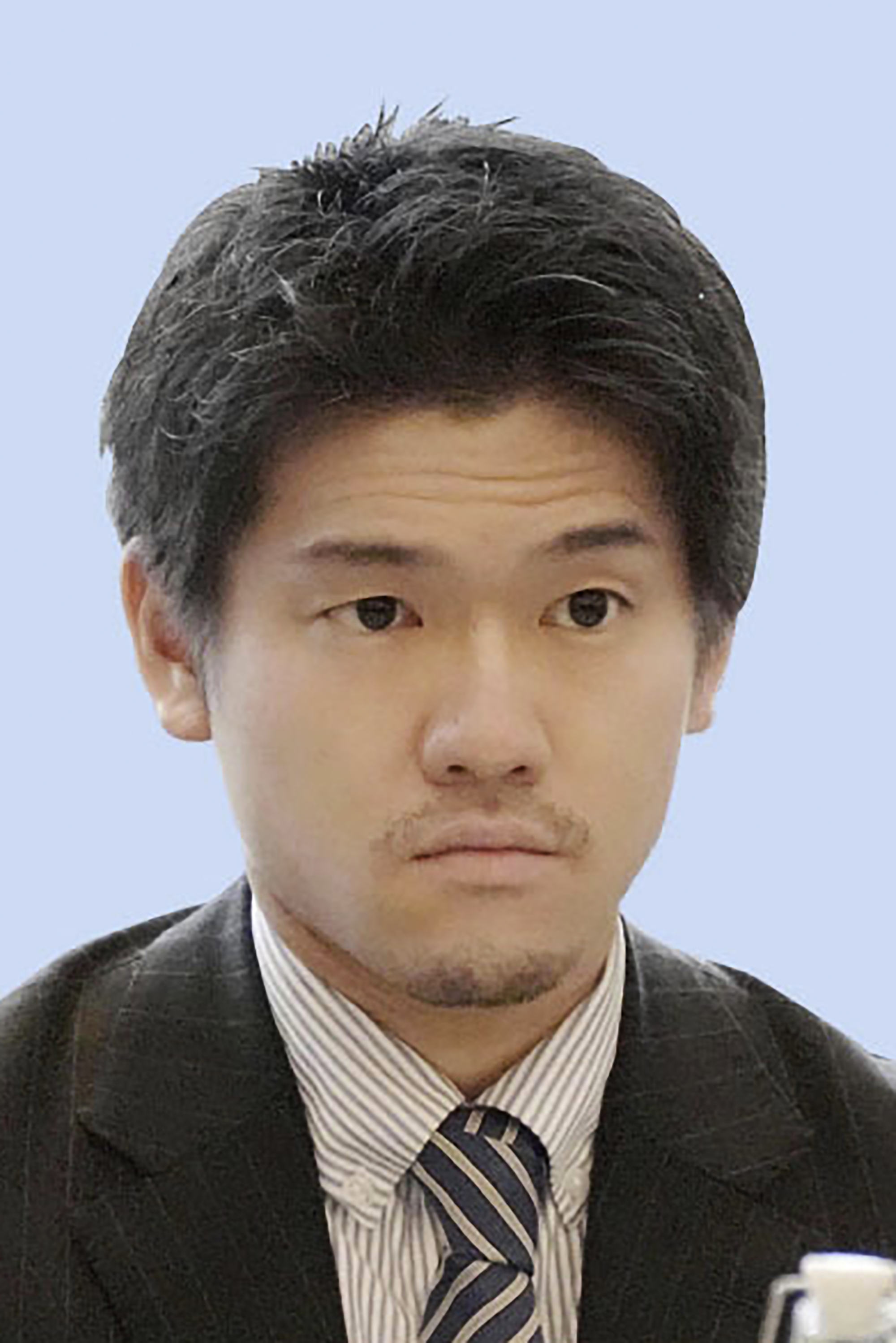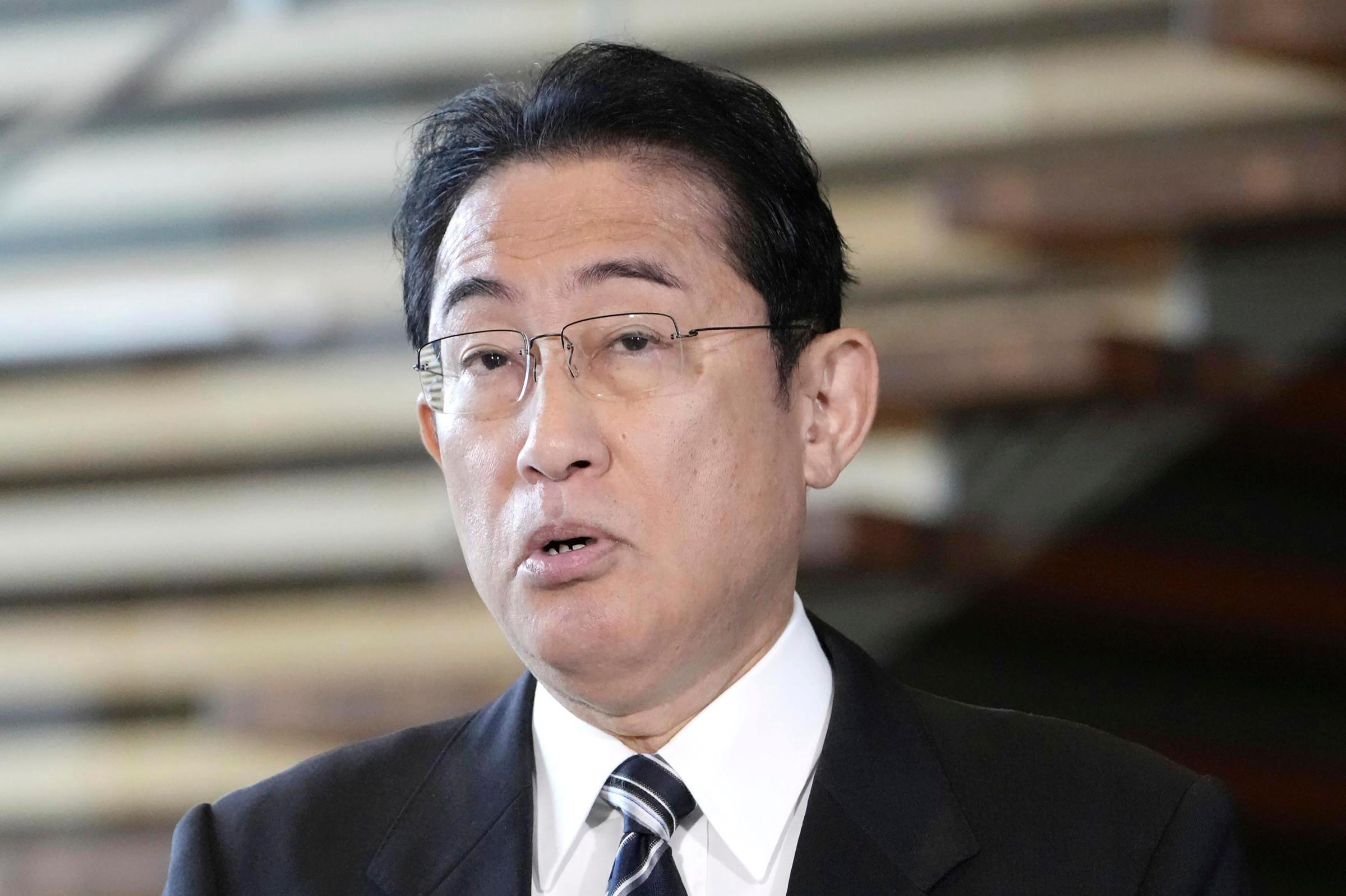
A gratuitous house party is roiling Japanese politics, landing the Prime Minister in deep trouble.
Shotaro Kishida, the 32-year-old scion and political heir apparent of Japan’s incumbent leader Fumio Kishida, has been fired from his post as his father’s executive policy secretary after images of him using the Prime Minister’s official residence for a private party sparked public outrage.
Photos released by the Shukan Bunshun weekly magazine last week showed Kishida’s son posing with relatives on red-carpeted stairs like how newly appointed Cabinet officials would. Shotaro stood in the middle of those photos—where the Prime Minister traditionally stands. Other photos showed guests standing at the Prime Minister’s podium as if holding a press conference. The magazine says the photos were taken on Dec. 30 last year.
More from TIME
Speaking to local reporters Monday, Prime Minister Kishida took responsibility for the incident—adding that his son will be replaced with another secretary starting June 1. “As secretary for (the prime minister’s) political affairs, a public position, his actions were inappropriate and I decided to replace him to have him take responsibility,” he explained.
Read More: Fumio Kishida on Plans for a More Assertive Japan
Since becoming Prime Minister in 2021, Kishida has been dogged by scandals, including his party’s links to the controversial South Korea-based Unification Church and its members, colloquially called Moonies. Kishida has been riding a political high over Japan’s hosting of the G7 summit, but the incident involving his son is seen to have been a dampener. A national poll conducted by major newspaper Asahi found that 76% of Japanese respondents thought the gathering Kishida’s son hosted was a problem, and opposition parties utilized the scandal to further foment public dismay and erode support for the Japanese leader.
It’s not the first time Kishida’s eldest son has been embroiled in controversy. As the Prime Minister went touring around G7 nations earlier this year, the younger Kishida, who was part of his entourage, had used official cars for sightseeing in London and Paris. Shotaro Kishida had also been criticized for buying souvenirs for Cabinet members during those trips, but the Prime Minister defended the move, saying the spending came from his own pocket.

The scandal has revived a long-standing issue with nepotism in Japanese politics. Kishida appointed his son, who was his private secretary, to the government post in October. Kenta Izumi, head of the main opposition Constitutional Democratic Party of Japan, at the time had reportedly said the appointment of Kishida’s son “had a strong element of intermingling public and private interests.”
Despite the backlash, however, Kishida is likely to emerge unscathed, says Jeff Kingston, director of Asian studies at Tokyo’s Temple University. “[Prime Minister Kishida] has weathered losing several Cabinet ministers, getting whacked by the Moonies scandal, popularity rating plunging, and he has recovered, clawed his way back,” he said.
While there’s no doubt about the embarrassment this may cause Kishida, Kingston believes Japan’s public is numbed to such scandals as several of Kishida’s predecessors, including Yoshihide Suga and the assassinated Shinzo Abe, have been mired in controversies of similar magnitude.
“Many Japanese politicians are guilty of far more egregious offenses than this that are harmful to the public interest,” Kingston said. “This is just a son who was in over his head. His father was trying to help promote his political career. And that looks, at least for the moment, pretty much dead in the water.”
More Must-Reads From TIME
- The 100 Most Influential People of 2024
- Coco Gauff Is Playing for Herself Now
- Scenes From Pro-Palestinian Encampments Across U.S. Universities
- 6 Compliments That Land Every Time
- If You're Dating Right Now , You're Brave: Column
- The AI That Could Heal a Divided Internet
- Fallout Is a Brilliant Model for the Future of Video Game Adaptations
- Want Weekly Recs on What to Watch, Read, and More? Sign Up for Worth Your Time
Contact us at letters@time.com